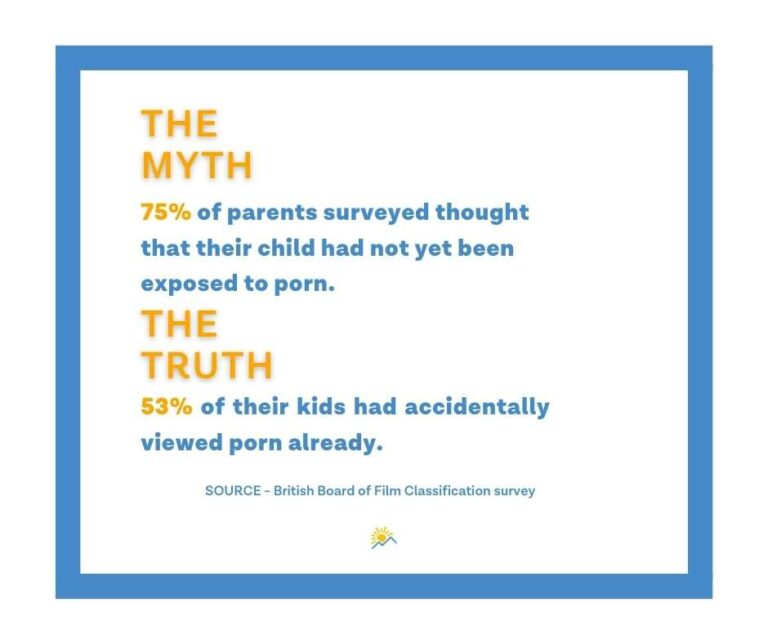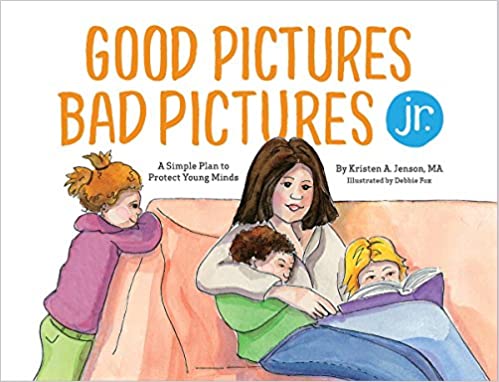Help! My child is looking at inappropriate content online.
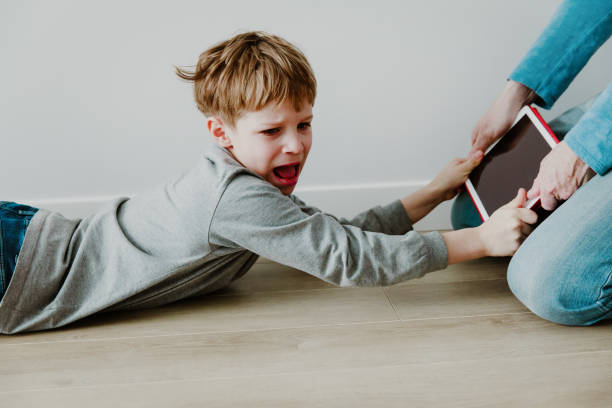
If you’ve discovered your child is looking at inappropriate content like porn, you have every right to be upset. Like you, literally millions of angry concerned parents are searching for help and answers to this dilemma.
Free, unrestricted porn online has created a public health crisis for our future generations.
The Children’s Commissioner in the UK agrees:
“I am deeply concerned about the normalisation of sexual violence in online pornography, and the role that this plays in shaping children’s understanding of sex and relationships.”
Don’t despair, though! A small, growing army of fed-up parents are fighting back. Thankfully, digital parenting resources are also increasing.
Help is here! Check out our parent’s guide if you’ve found your child watching explicit content online.
Table of Contents
- The ONE action you need to take right away if your child is viewing porn
- 6 talking tips if your young child has seen explicit content
- 6 talking tips: when your elementary-aged or “tween” child views inappropriate content
- 5 major danger zones for porn, predators, sexting, and sextortion
- What to do if your teen is watching inappropriate content
- How to revisit the porn conversation regularly with your teen
- More parent resources if your child is looking at inappropriate content online
The ONE action you need to take right away if your child is viewing porn
Instead of saving the best for last – if you do nothing else – please take this action step. Download accountability software on every single device in your family.
Next, go into the settings of the app and make certain sharing is turned on for every app your child uses.
Taking this step immediately has two amazing benefits. First, weekly accountability reports give you a reason to check in with your child regularly.
Next, the responsibility for avoiding online dangers is removed from your child. That is an impossibly heavy burden.
You can now tell your child, “The world is both a place of great beauty and also of dark dangers. It’s not that I don’t trust you! I don’t trust strangers on the internet who don’t love you like I do.”
Now, if you have time to keep reading, we’ve researched expert advice for you. Here’s how to respond in the moment when you realize your child is viewing inappropriate content.
6 talking tips if your young child has seen explicit content
1. Calm your inner (and outer) roar.
When you discover a young child has viewed inappropriate content, take time to process your emotions. You’re allowed to be furious, scared, and sad! Above all, you’ll need to calmly communicate to your child, “Bad pictures online are the problem, not you.”
More than likely, for a young child, this was a one-time event. Don’t ignore having this vital conversation about good pictures and bad pictures, though. The sooner you can talk with your child, the better.
2. Be a good detective by asking gentle questions to get needed information. For example:
- Did someone show these pictures?
- What kind of pictures did you see?
- Where did you see bad pictures – on a phone, laptop, or tablet?
- When or how many times did you see bad pictures?
- How did seeing this make you feel?
Sometimes answers might not come all at once. A child may end up sharing more details at a later time, as they process things differently.
3. Listen well with compassionate kindness and positivity.
Your child is not to blame. Although they’re naturally curious about their bodies, young children don’t normally go looking for porn.
You need to be their safe space, since they’ve already been violated. Reassure them that you are not angry with them!
4. Plan and take appropriate actions.
If the culprit is another child’s device, a relative, or even your own smartphone, put more online safety plans in place.
It’s okay to be the “weird” parent who says, “No screen time during visits or playdates!”
Depending on your child’s age, pediatricians highly recommend no devices or very, very limited screen time. Set up online filtering, parental controls, and other safety measures on all devices in your home.
Finally, be aware of sneaky places where porn attacks kids, like sleepovers, Defend Young Minds reminds parents.
5. Have healthy, age-appropriate conversations regularly about their bodies.
Encourage your children to ask good questions and teach them how to respond and reject porn. Again books are very helpful teaching and conversation tools, such as the list pictured below from Defend Young Minds.
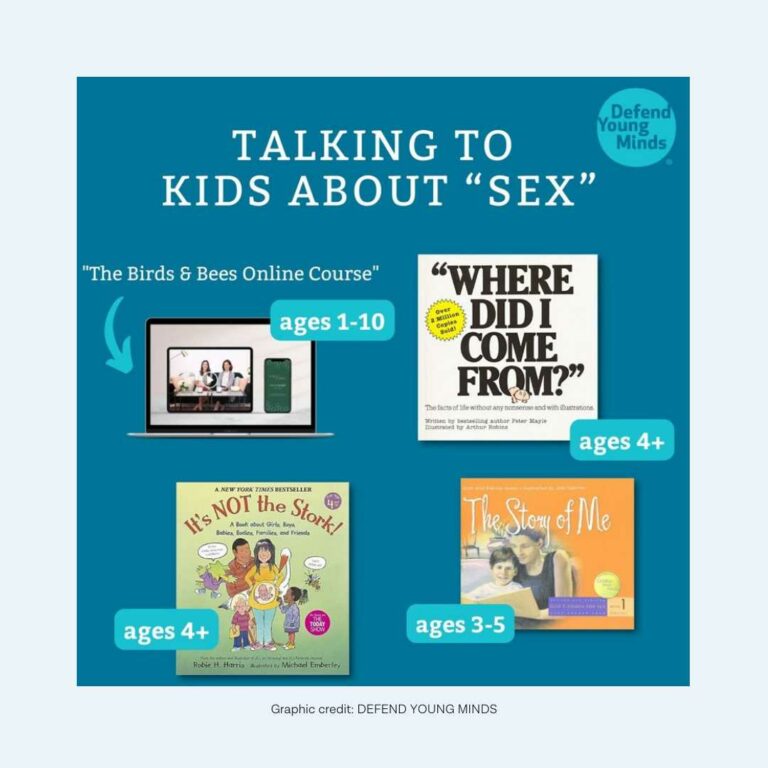
6. Talking to a family therapist could be very helpful and even needful.
If you discover your young child viewing porn has been an ongoing issue, or if there is even the hint of sexual abuse, the damages can last a lifetime if not addressed.
Also, if your child has seen online child sexual abuse material (CSAM), please report it. Sadly, sexual assault nurse examiners are reporting treating younger and younger children affected by porn use and CSAM.
6 talking tips: when your elementary-aged or “tween” child views inappropriate content
“I have talked to hundreds of parents,” Cherkin explains,
“and no one has ever said to me, ‘I wish I gave my kid a phone earlier,
or I wish I’d given them social media access sooner.’ Never. “– Emily Cherkin, npr.org, author of The Screentime Solution and founder of The Screentime Consultant.
As if digital parenting wasn’t tough enough, parents are under enormous pressures to cave into societal norms. Almost overnight it has become common and convenient for children to have phones and devices.
For example, one parent angrily shared that a relative gifted her two year old with a tablet against her explicit wishes. (Of course, said tablet disappeared mysteriously.)
Sadly, now it’s a matter of WHEN and not if your child will encounter porn and inappropriate content. Again, when you learn your child has viewed porn, take time to calm yourself.
Then say, “I need to talk to you about something important.”
1. Prepare before talking to your child.
Have a clear goal in mind, and think about the context of your child viewing inappropriate content.
Is this the first time you’ve discovered your child viewing porn? Or did they self-disclose?
2. Allow them to tell their story and listen attentively.
How did your child find porn? Many times it’s completely by accident, like researching a school project. Or a friend sent or showed them something unexpectedly.
3. Always ask gentle questions.
For example, if you can gently discover how often they’re viewing porn, you will find out the extent of the damage. If a child viewing porn accidentally is left unaddressed, damages can escalate, making them more vulnerable to child sexual abuse, for instance.
Is this happening often? Do they feel anxious or traumatized by what they saw? A professional counselor may be helpful to rewire their vulnerable young mind.
4. Try not to judge – maintaining their trust is vital.
The worst thing would be for your child to stop talking to you, because they’re afraid of you. Many, many kids share that they are afraid to tell their parents if they’ve viewed porn, even accidentally.
One mom shared this brilliant question for when you’ve offended your child: “Hey, can we start over?”
5. Invite your child to ask you any questions they have about sex and their bodies.
(Yes, they have questions! That is completely normal. )
6. Normalize and schedule talk times.
Have a date night or an outing where you create a comfortable space for talking. Food is an amazing conversational starter! Inside these safe spaces, keep asking open-ended questions. For example, Do you think kids at school are watching inappropriate content?
Once you’ve gathered intel, you can begin to fight back!
Next, knowing where the basic danger zones are for your child viewing explicit content and setting up protective boundaries is a good place to start.
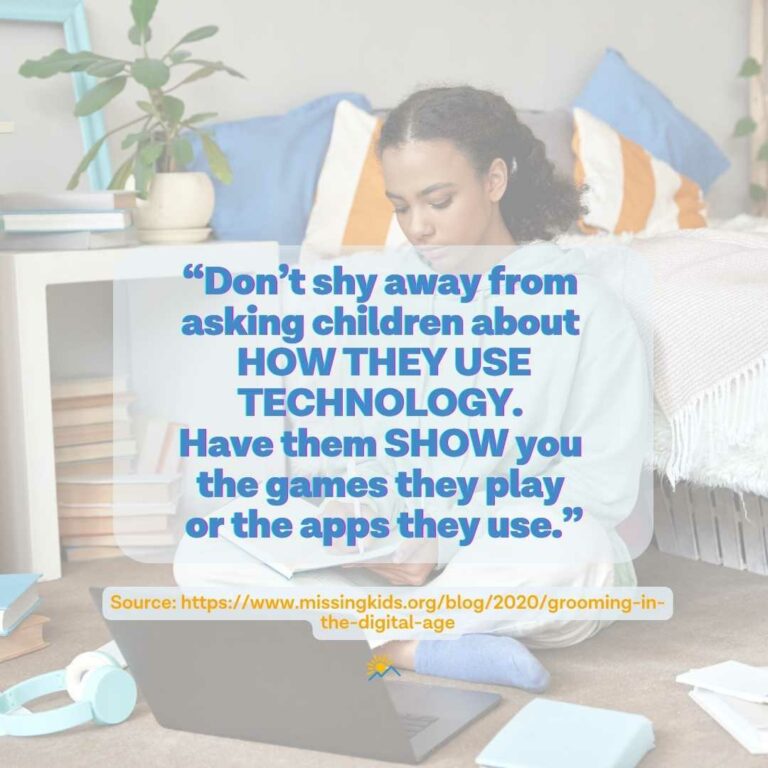
5 major danger zones for porn, predators, sexting, and sextortion
We’ve created some step-by-step guides for setting healthy boundaries on social media and apps.
Right now Android devices provide the safest, easiest options for filtering, blocking, and sharing your child’s online activities including where your child is looking at inappropriate content.
5 MAJOR online danger zones where you child may find explicit content or encounter predators include:
- All of the major social media apps with DMs
- Gaming sites and apps that have private chat.
- Access to friends or relatives’ unprotected devices (or even the school chromebook…)
- Unfiltered internet access at someone else’s home
- Screens in bedrooms or behind closed doors
Life is better with healthy boundaries and healthy choices!
Organizations like 1000 Hours Outside are helping parents fight back against unhealthy screen time norms. Getting out in nature is good for brain development and mental health for all ages. However, it’s normal for online boundaries to change as your child grows.
What to do if your teen is watching inappropriate content
“Oh, a little porn is totally normal,” some parents will say, “Boys will be boys!”
Often it’s the influence of these teens with unlimited internet access (NO boundaries) on their devices who present the biggest danger to your teen.
The UK Children’s Commissioner weighs in:
“Throughout my career as school-leader I have witnessed the harmful impact of pornography on young people. I will never forget the girl who told me about her first kiss with her boyfriend, aged 12, who strangled her. He had seen it in pornography and thought it normal.”
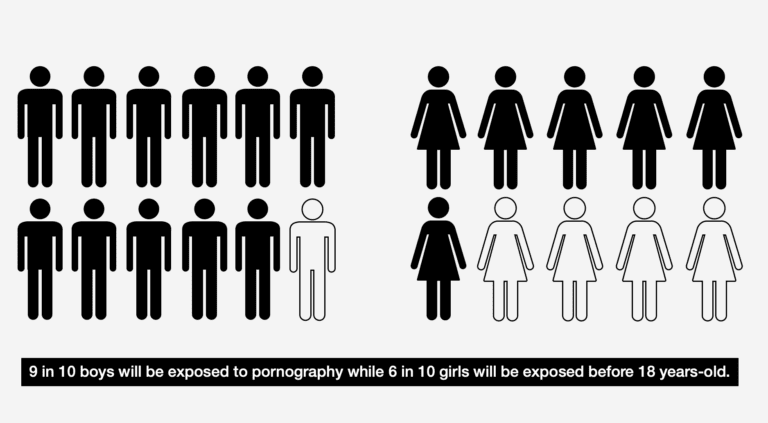
Regulate your emotions.
Shame and guilt is normal when parents find out their teen is watching inappropriate content. In fact, catching your teen watching porn – especially if your faith is important to you – is devastating. You’re allowed to be feeling angry, frightened, and even deeply disappointed in yourself and your teen. Take some time for yourself, so you can respond more objectively.
Practicing kind responses opens the doors for difficult conversations.
Remember your teen is also likely very ashamed, scared, and embarrassed to talk to you about their porn use, says Barb Winters, author of Sexpectations, pastor’s wife, and mom blogger at Hopeful Mom.
Barb’s son shares his experience of talking to his parents about secretly viewing porn again on a regular basis (a relapse) – after his parents thought he was doing better!

“Luckily, my parents were kind and accepting of me. I believe this is one of the best things parents can do for their children. Children will never confide in their parents if they believe the wrath of their parents will be worse than the reward of them getting help. My parents put heavy restrictions on all of my devices, but it was what I needed.” Sexpectations, pg. 155
Long term consequences of NOT talking with your teen about online dangers are serious.
Since porn use harms teens in so many ways, it’s a conversation you cannot sidestep without significant long-term consequences. Another young man in his early twenties shares his story of being hooked on porn since he was ten:
“It has created a hole in some relationships that I can never fill now. I started to scare myself when I went to the gym one day and started to look at people differently.” ~ Cole
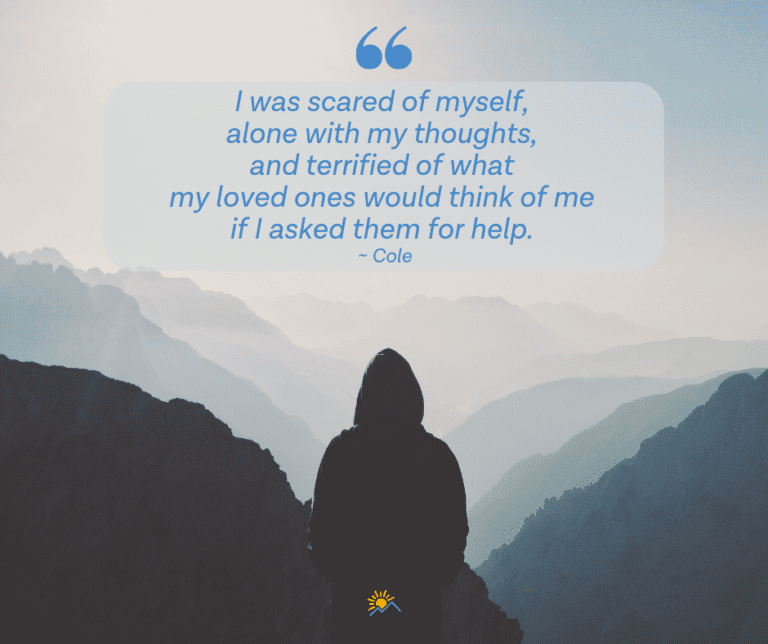
Creative ways to have the porn conversation.
Opening channels of communication can be challenging! Teens are often super sensitive to criticism and your mood, so remaining calm and kind is key!
Obviously it’s an uncomfortable conversation. It’s not cheating to bring an ally – your teen’s favorite snacks and drinks! Privacy is also important, so look for a setting away from distractions or siblings.
Since there isn’t a one-size-fits-all approach, here are some different ideas you can use.
- Destigmatize the topic.
You go first! Share a story of sexual shame or a mistake you made in the past. Or, you might simply say, “You know. I never got my questions about sex answered when I was growing up. In fact, that topic was mostly shame-filled, treating sex like a dirty word. I’d like to do better.”
- Talk about a porn via trending news topic.
Talk about the dangers of so many sharing and viewing inappropriate online content – for example – AI, deepfake porn, and sextortion
- Ask a church youth leader to hold a discussion forum about porn to open doors.
For Amu, a young lady hooked on porn as an early teen, hearing her youth pastor speak compassionately about porn use was a significant turning point in her life.
- Listen to the true stories of former porn actors together.
Former porn actors Joshua Broome or Brittni De La Mora, share how the porn industry harmed them. When teens realize how the porn industry exploits people, viewing porn becomes darker and less “acceptable”.
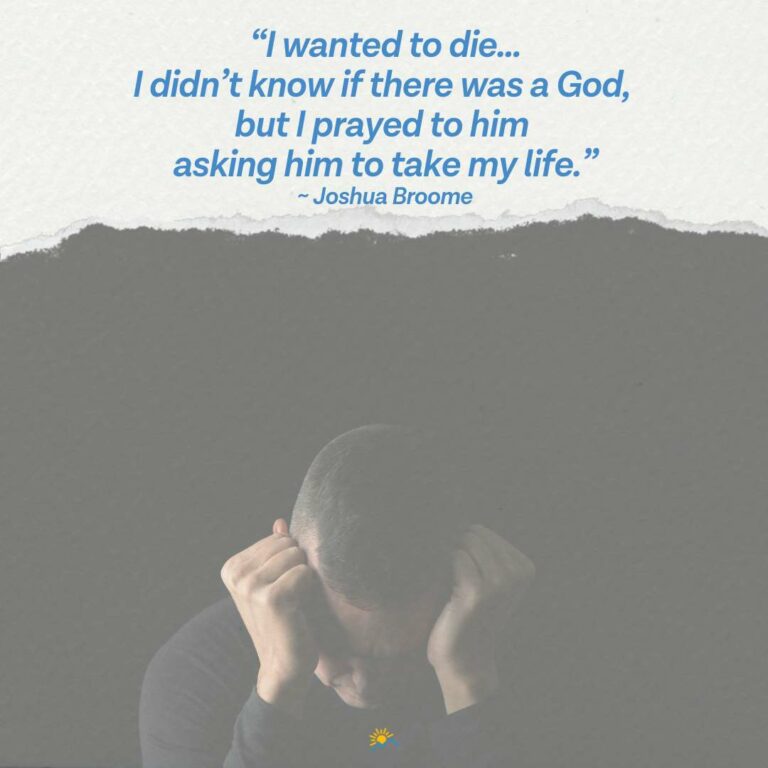
How to revisit the porn conversation regularly with your teen
Talking about sex and online dangers is never a one-and-done conversation during the growing up years. Gradually the conversations grow and change as your child develops.
Model personal growth and accountability
If you personally have a lot of shame around the topic of porn use, you also have the opportunity to be an amazing cycle-breaker and mentor.
First, model healthy relationships by putting online accountability in place for yourself. This speaks volumes to your children. When you set up online accountability for your teen as well, weekly reports of online activity provide a regular opportunity to talk.
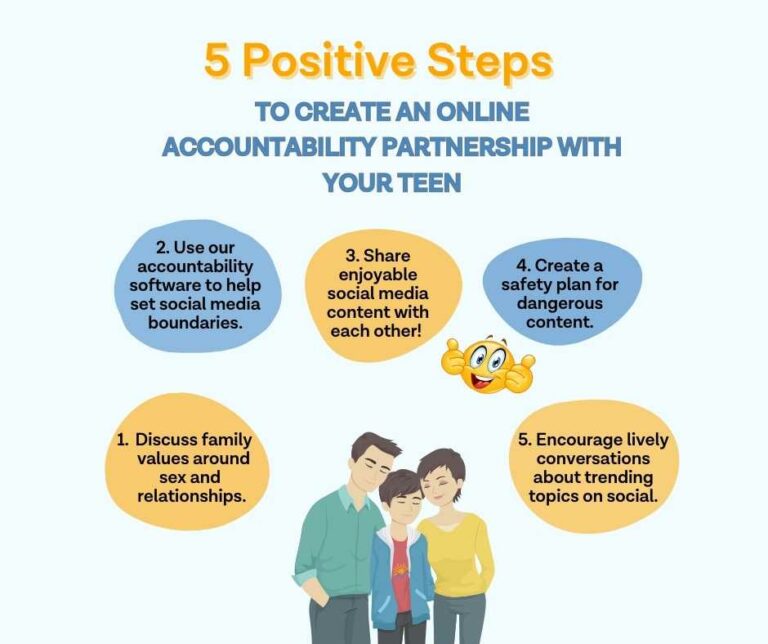
Put down your own phone and give your teen an E.A.R.
Have you ever felt like you *might* by hooked to your own smartphone? (Most hands raised, hmmm?) More than ever, we have to practice being active, loving listeners.
We all need a kind, safe ear, our own children, especially.
- E: Encourage your teen to share anything that makes them feel uncomfortable. It’s not gossip to “spill the tea” about any person online or in person who makes them feel unsafe.
- A: Attune by asking easy questions to gently stay in touch: “What was the best thing in your day? What was the worst thing? Anything funny?”
- R: Reassure them of their value and worth. They’ll know they can always talk to you – especially if they’ve made a big mistake online, like sending another friend a nude or viewing explicit content.
Open communication with your child is commonly repeated “best advice” of pediatricians, psychiatrists, and family therapists. It’s one key to rebuilding trust, especially after you’ve discovered your child is looking at inappropriate content online.
You’ll blink – and your children are grown! So we’re sure you’ll never regret time invested in your child’s online safety and healthy conversations.
*Ever Accountable’s blog is not intended to be a substitute for professional advice, diagnosis, or therapy, though we often link to medically reviewed studies.”
More parent resources if your child is looking at inappropriate content online
Porn survey reveals extent of UK teenagers’ viewing habits | Young people | The Guardian
‘Alarming trend’: Children’s Mercy nurse says more children being sexually assaulted by peers
3 reasons children fear talking to parents about porn | Voice
So your tween wants a smartphone? Read this first
Hooked- A Story of Accidental Childhood Exposure To Porn
Good Pictures, Bad Pictures – Podcast Series – FamilyLife®
5 Hidden Dangers of Discord-A Safety Guide for Parents – Ever Accountable
TikTok and Teens: Hidden Dangers Parents Need to Know & What To Do Next
Teens On Social Media: An Instagram Safety Guide For Parents
iOS User’s Guide to Ever Accountable for Busy People
Hopeful Mom!
6 Things to Do If Your Kid Sees Pornography | Common Sense Media
Resources & Research: Understand and Identify Child Sexual Abuse – protectchildren.ca
5 Sneaky Locations Porn Finds Kids | Defend Young Minds™️
Tessa Stuckey (@themomtherapist) • Instagram photos and videos (possible influencer to reach out to…)
https://www.instagram.com/p/CwIc-QAoNOV/ (The Screen Time Consultant) Emily Cherkin
